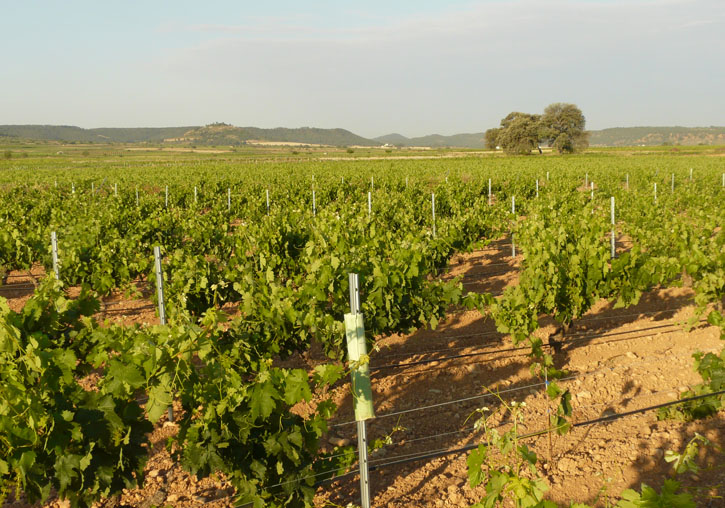Users
Social media
- More details here...
- Address
Parc Científic de la Universitat de València C/
Catedrático Agustín Escardino, 9
46980 Paterna (Valencia) Spain - Email:
iu.i2sysbio@uv.es - Phone:
(+34) 963544810
- Address
Links
The scientific community calls for the European Union to allow genome editing for sustainable agriculture

Investigation
The scientific community calls for the European Union to allow genome editing for sustainable agriculture

The European scientific community grouped in the European Network for Sustainable Agriculture through Genome Editing (EU-SAGE) has made public, today, Friday, July 24, a public statement addressed to the European Commission, Parliament and Council so that the legislation is modified and genome editing techniques are allowed and, with them, sustainable agriculture and an improvement in food production.
The entity, which brings together 132 European research institutes and associations, including the Vice-Rectorate for Research and the Institute of Integrative Systems Biology (I2SysBio), a joint center of the University of Valencia and the CSIC, makes this call in the context of offering solutions for a more efficient selection of climate-resistant crops, less dependent on fertilizers and pesticides, and that help preserve natural resources.
Thus, they advise “reviewing” the existing directive on Genetically Modified Organisms (GMO). The changes caused by this technique, without the introduction of foreign DNA, can also occur naturally, so the technique should be exempt from the application of GMO legislation. The modification of the legislation that is intended with the manifesto refers to the decision of the Court of Justice of the European Union, of July 25, 2018, which de facto prevents the use of this technology for the improvement of crops in Europe.
“When regulating genome editing, legislators must also consider the benefits of this technology, including the disadvantages of not adopting it,” they say, referring to the countries that do apply it. In this sense, EU legislation fundamentally distinguishes between crops according to whether they are produced by genome editing or by traditional breeding methods. "There is an urgent need for harmonization of the regulatory framework worldwide," they point out.
“The influential sectors of European society are not aware of the value of innovation in agriculture, including that necessary to preserve traditional varieties. A narrative is necessary for European food production that includes the importance of innovative and more efficient approaches throughout the value chain," concludes the specific request to the executive and legislative bodies of the European Union.
Precision farming
The manifesto recalls that to achieve more sustainable agriculture and food production, the most recent tool to develop new crop varieties is cultivation precision technology, also known as genome editing, which makes it possible to develop desired crop varieties in a faster, relatively simpler and much more direct way compared to previous breeding techniques.
The recently published Green Deal of the European Commission declared in the context of the Farm to Fork strategy ('From the farm to the fork') that the EU needs to develop innovative ways to reduce dependence on pesticides and fertilizers, reverse biodiversity loss while providing society with enough nutritious, sustainable and affordable food. The strategy coincides with the importance of food and agriculture in achieving the United Nations Sustainable Development Goals (SDGs).
“In addition to achieving these goals, we need to develop a highly productive and sustainable recovery from the COVID-19 crisis, with agriculture that is less dependent on imports from outside the EU.” In this sense, they cite that the necessary tools are “all possible approaches, including innovative plant breeding technologies, to address these challenges and achieve the ambitious objectives of the Farm to Fork strategy.” href="http://www.uv.es/cdciencia/pdf/manifest_edicio_genoma_20_sp">in Spanish here.
Manifesto in English here.
Manifesto in Valencian here.
Website of the European Network for Sustainable Agriculture through Genome Editing (EU-SAGE): https://www.eu-sage.eu/
Attached captions:
Logo of the European Sustainable Agriculture through Genome Editing (EU-SAGE) network (European Sustainable Agriculture Network a through Genome Editing (EU-SAGE)).
Map that includes the global status of the application of genome editing techniques. In green, countries without regulation; in red, limited because they are considered transgenic; and in orange, countries under discussion. Image: @EU-SAGE.






